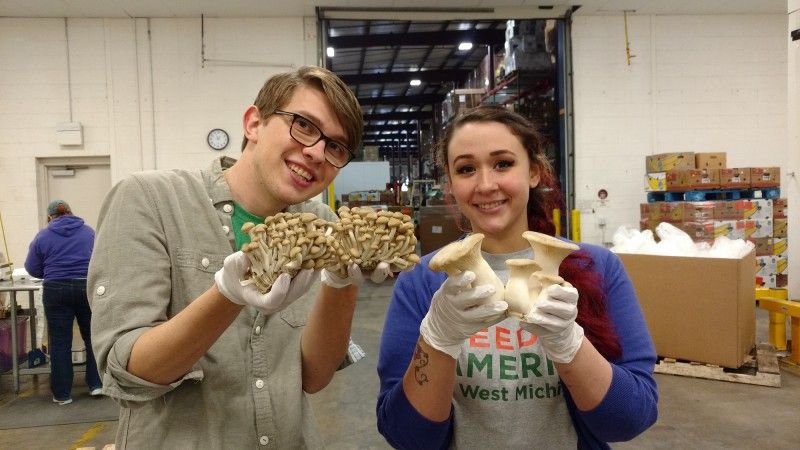Description:
Food packing jobs are essential in the food industry, ensuring products are prepared and packaged safely for consumers. These roles play a crucial part in maintaining quality, safety, and efficiency throughout the food supply chain. With the growing demand for food products, especially in the e-commerce sector, job opportunities in food packing are on the rise across the United States. This guide provides an in-depth look at food packing jobs, the skills required, job prospects, and tips for securing a position in this field.
Types of Food Packing Jobs
- Production Line Packer
- Description: Workers in this role pack food items directly on production lines. They may operate machinery, inspect products for quality, and ensure proper packaging.
- Industries: Canned goods, frozen foods, and snack manufacturing.
- Quality Control Inspector
- Description: These individuals oversee the packing process to ensure all products meet safety and quality standards. They conduct inspections and may reject improperly packed items.
- Industries: Food processing plants, bakeries, and dairy farms.
- Warehouse Food Packer
- Description: Warehouse packers handle bulk food items, packing them for distribution to retailers or direct to consumers. This role often involves using forklifts and pallet jacks.
- Industries: Wholesalers, distributors, and e-commerce fulfillment centers.
- Specialty Food Packer
- Description: This role focuses on packing gourmet or specialty items, often requiring more delicate handling and attractive presentation.
- Industries: Artisan food producers, organic brands, and gourmet shops.
- Frozen Food Packer
- Description: These packers work in environments where food is frozen immediately after packing. They must follow strict safety protocols to prevent contamination.
- Industries: Frozen food manufacturers and meal kit companies.
Skills Required for Food Packing Jobs
To excel in food packing jobs, candidates typically need a combination of technical and soft skills:
- Attention to Detail: Ensuring products are packed correctly and meet safety standards.
- Physical Stamina: Many roles involve lifting heavy boxes and standing for long periods.
- Basic Math Skills: Necessary for measuring ingredients and calculating quantities.
- Time Management: Ability to meet production deadlines in fast-paced environments.
- Communication Skills: Important for working effectively in teams and reporting issues.
Educational Requirements
Most food packing jobs require minimal educational qualifications, with many employers seeking candidates with a high school diploma or GED. However, certain positions, particularly in quality control, may require additional training or certifications in food safety or handling.
Job Outlook and Salary
The job outlook for food packing jobs is promising, driven by the increasing demand for processed and packaged food. According to the Bureau of Labor Statistics, jobs for food and beverage processing workers are expected to grow by around 6% over the next decade.
Salary Overview:
- Production Line Packer: $28,000 – $35,000 annually
- Quality Control Inspector: $35,000 – $45,000 annually
- Warehouse Food Packer: $30,000 – $40,000 annually
- Specialty Food Packer: $32,000 – $42,000 annually
- Frozen Food Packer: $28,000 – $38,000 annually
Where to Find Food Packing Jobs
- Online Job Boards: Websites like Indeed, LinkedIn, and Glassdoor frequently list food packing positions.
- Company Websites: Major food manufacturers and distributors often have dedicated career sections.
- Staffing Agencies: Many agencies specialize in food and beverage placements and can help connect job seekers with openings.
- Local Job Fairs: Networking at job fairs can lead to opportunities in food packing.
Tips for Securing a Food Packing Job
- Customize Your Resume: Highlight relevant skills and experiences that match the job description. Emphasize any prior experience in food handling or production.
- Prepare for Interviews: Be ready to discuss your experience in detail, particularly any familiarity with food safety regulations and quality control processes.
- Demonstrate Reliability: Employers value dependable workers. Show commitment through your punctuality and attendance.
- Pursue Certifications: Obtaining certifications in food safety (such as ServSafe) can enhance your employability and showcase your commitment to quality.
Challenges in Food Packing Jobs
While food packing jobs can be fulfilling, they also present challenges:
- Repetitive Work: Packing tasks can become monotonous, leading to fatigue.
- Physical Strain: The job often involves heavy lifting and long hours on your feet, which can lead to physical exhaustion.
- Strict Regulations: Adhering to food safety guidelines is crucial, and failure to comply can result in severe consequences for the company and individual workers.

